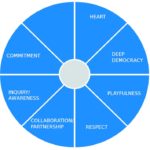I was presenting Building Antifragile Relationships and Teams at Santa Barbara Agile recently and as we worked on ideas for a conflict protocol, we started discussing the common theme of “facts vs. feelings”. I’ll point out that there was not a hard-line view in the group as to one way or another, but it came up and opened up a nice discussion on the topic.
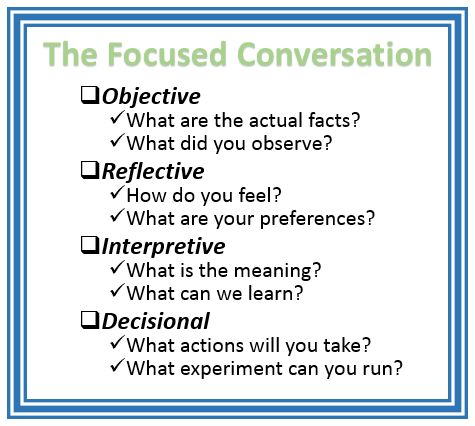
I mentioned The Focused Conversation as a great tool you can use to help structure a conversation. Focused Conversations include four important categories of questions — objective, reflective, interpretive, and decision focused questions. The acronym ORID is sometimes used to describe The Focused Conversation.
The structure also provides a way to hear all of the voices that need to be heard within the group or team. You might even use this as part of an agile retrospective. Using the tool is another way to build antifragile relationships in teams and organizations.

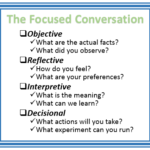


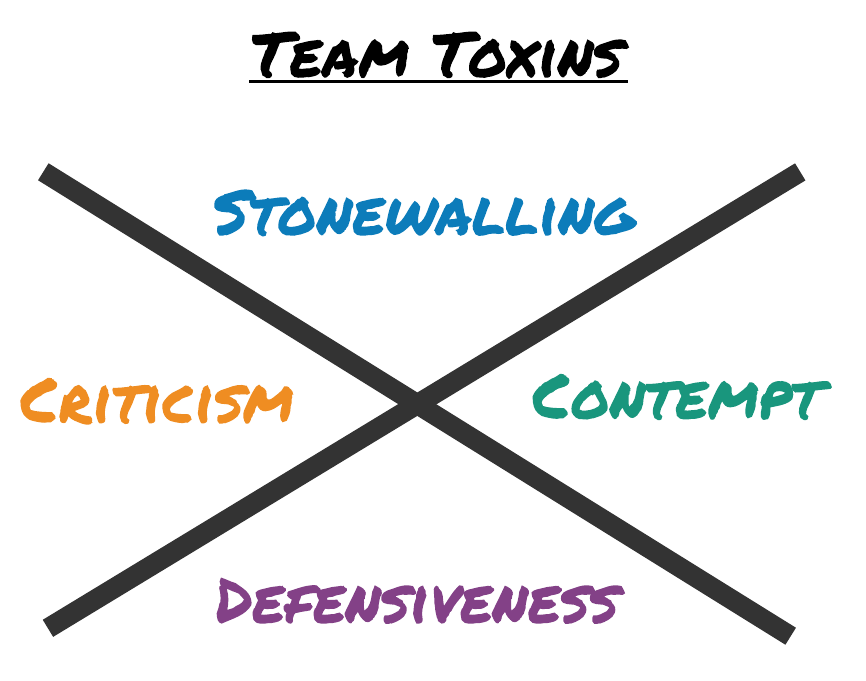



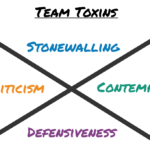
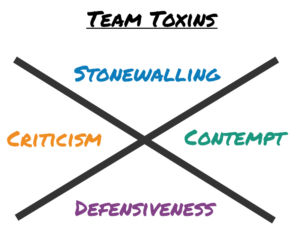 For those of you who could not attend, our team toxin presentation is based on work by
For those of you who could not attend, our team toxin presentation is based on work by 